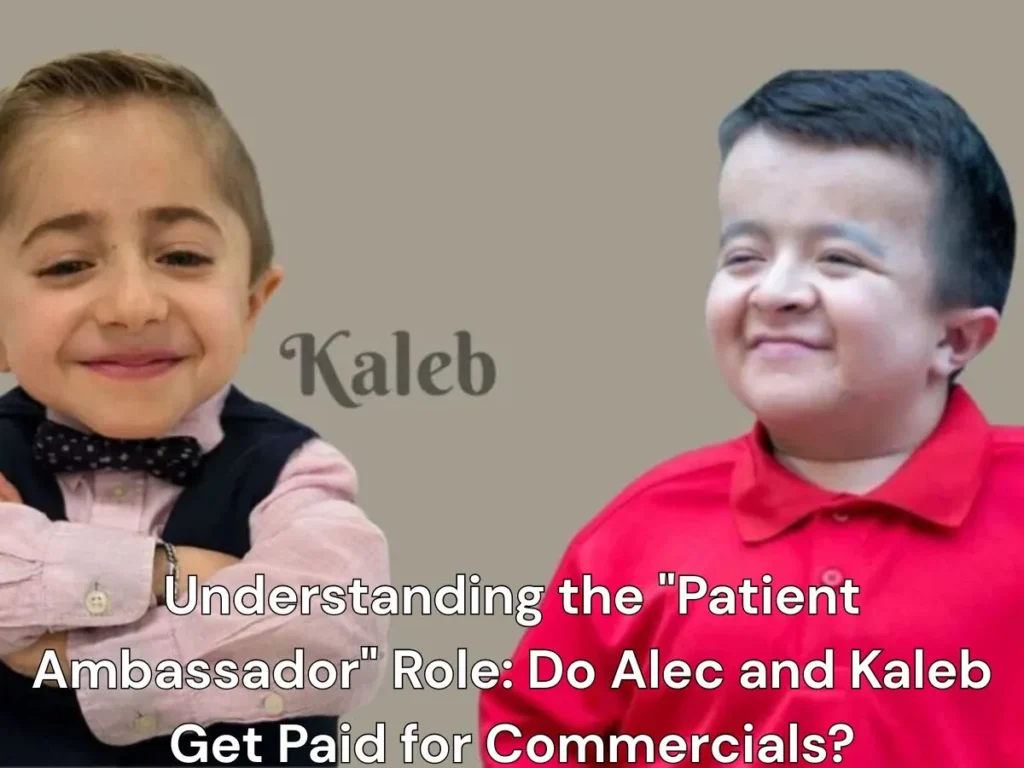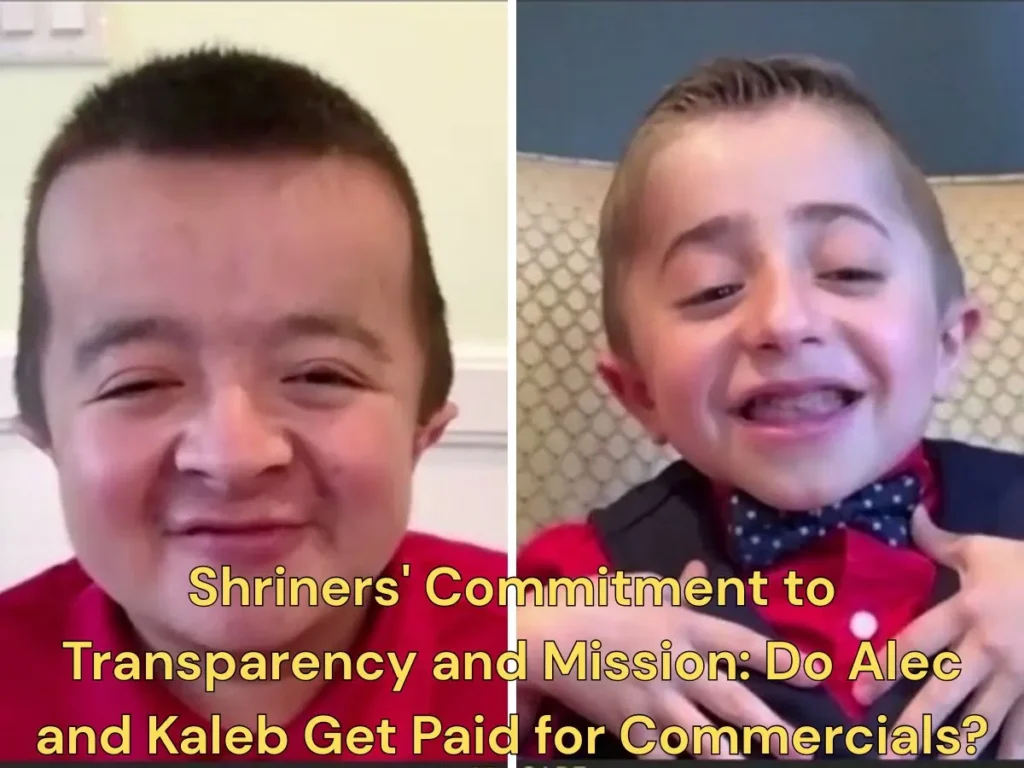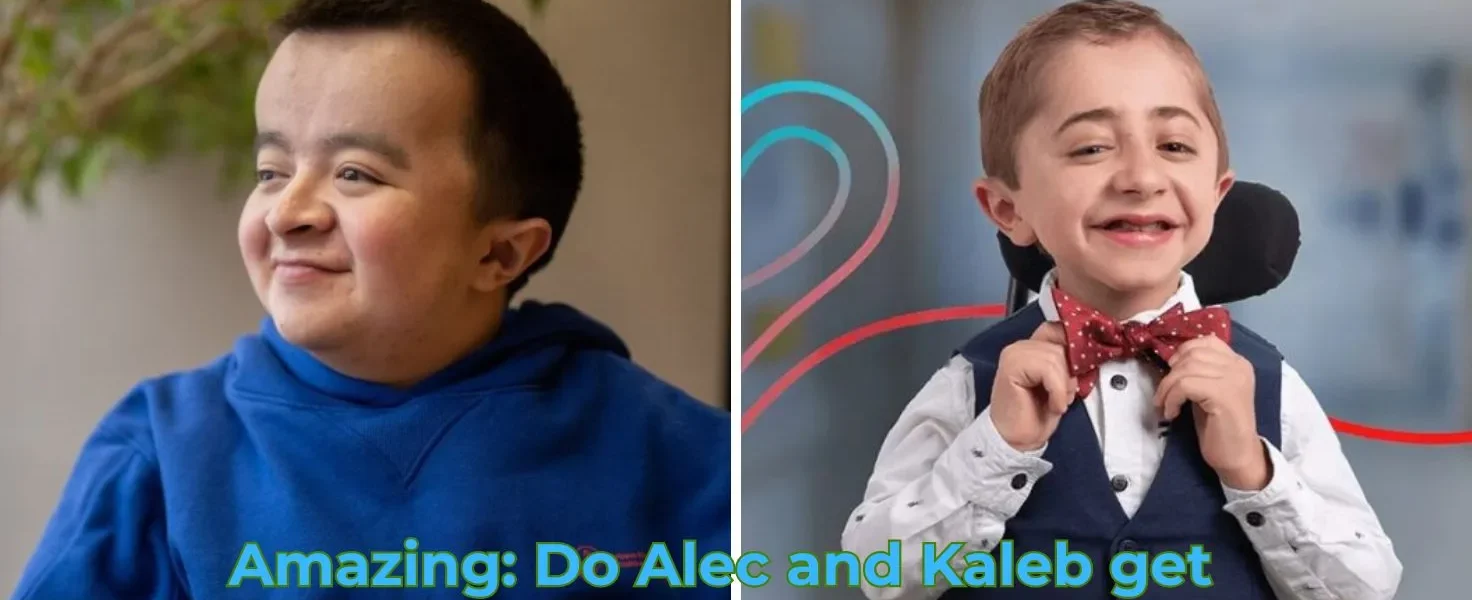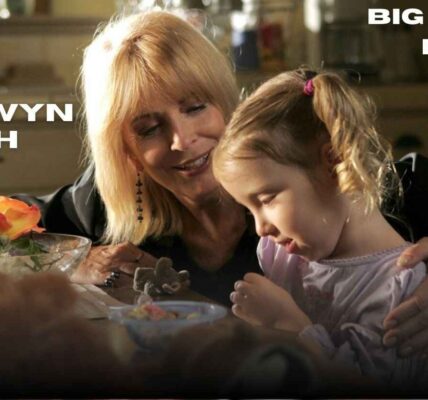Introduction
Do Alec and Kaleb get paid For Commercials? This popular question, this wonder, arises simply because millions of people have seen the heartwarming television commercials for Shriners Hospitals for Children.
They star courageous young men like Alec Cabacungan and Kaleb Torres.
They reside under challenging conditions, to be sure, but as beings, they are an inspiration to so many.
Their smiles and inspiring stories have a profound impact on us all. We naturally consider compensation for those deeply committed to a charitable cause.
Readers, the objective of this article is to provide you with a clear, empathetic, and comprehensive answer.
Understanding the “Patient Ambassador” Role: Do Alec and Kaleb Get Paid for Commercials?

Before we proceed to the payment part, we need to discuss Alec and Kaleb’s unique position within the Shriners organization. They’re not “actors” in a commercial. What they are not, however, is an army.
What is a Shriners Patient Ambassador?
Shriners Hospitals for Children provides one-of-a-kind, high-quality pediatric care. They do so regardless of a family’s ability to pay for the care they receive.
Shriners typically uses authentic patient narratives to teach about its mission and solicit donations.
The Shriners’ patient ambassador program picks patients whom the hospital has helped. These patient ambassadors embody the “Love to the Rescue” spirit.
They are voices for the charity’s mission, highlighting the life-changing medical care they received. They show their appreciation. It also helps other children.
Alec and Kaleb: More Than Just “Actors”
Alec and Kaleb were the first patients at Shriners. They were trying to get essential care for their problems.
Alec, who is not only resilient amid the challenges of osteogenesis imperfecta but also takes care of many of his own health needs, and Kaleb, who has faced similar medical challenges over the years, both have spent much of their lives receiving care from Shriners.
Their commercial endorsements stem from their actual patient experience. They are not professional actors.
Instead, their public visibility rose as potent, living symbols of the Shriners’ impact. Others wonder, Are Alec and Kaleb still doing Shriners commercials?
They remain iconic figures and occasional ambassadors as they approach old age. In their memory, Shriners remain aligned with the message of hope.
The Truth About Compensation: Do Alec and Kaleb Get Paid for Commercials?
Now, for the real question: Do Alec and Kaleb get paid for commercials? The short answer requires some context.
Direct Payment vs. Support: A Key Distinction
Shriners Hospitals for Children doesn’t pay Alec and Kaleb a “salary.”
Unlike full-time employees or traditional commercial actors who work by contract, they are not. Shriners is a non-profit organization.
Its revenue supports patient care, medical research, and education. However, Shriners compensates its patient ambassadors for their duties. Most often, that takes the form of reimbursing them for their time and expenses.
When Alec or Kaleb (or their families) make appearances in commercials, photo shoots, or taping sessions, or at public events, they generally receive money intended for the following expenses:
- Travel and Stay: Flights, hotels, and meals for them and their families.
- Daily Allowance (Per Diem): Money given to compensate for time spent away from school or a job. This also works for tiny expenses.
- Medical and Equipment Support: Promotional can provide that extra degree of support or a different type of equipment. This is all just part of their total care.
It is not only a common practice for non-profits, but also a justifiable one. It prevents families from paying for their role in activities that benefit the charity.
The idea is to allow them to share their powerful stories without aiming for profit. Charity promotions often establish trust funds or educational support for child beneficiaries.
For instance, some charities may have a trust fund established through the Shriners for the benefit of patients.
Understanding Charity Compensation Ethics
Are Shriners commercial actors paid?, is part of broader ethics when it comes to charity advertising. Good non-profits follow strict rules.
These rules ensure financial transparency. And from anyone benefiting too much from charity money. In a similar vein, organizations such as the Association of Fundraising Professionals (AFP) argue that compensation should never be based on a percentage of funds raised.
No person shall receive any unreasonable financial gain. It must bear a direct relationship to the work performed or expenses incurred.
Patient ambassadors receive compensation to offset their expenses and recognize their time. They don’t earn a “salary” from donations. Shriners keeps specific details, including Alec Cabacungan’s salary and the compensation of Kaleb Torres, private. That’s normal for personal financial contracts.
The Broader Impact: More Than Just Money Do Alec and Kaleb Get Paid for Commercials
And while payment is a fair question (and one that pays no attention to most of the other indelible contributions Alec and Kaleb, among others, get from Shriners). These are much larger benefits than any amount of cash.
Life-Changing Care: The True “Compensation”
Alec, Kaleb, and all Shriners kids get the best “compensation” of all, incredible, free medical care and assistance from Shriners Hospitals for Children. They get:
- World-Class Medical Experts: Highly trained physicians, surgeons, therapists, and teachers of healthcare professionals around the world, in addition to being experts in complex pediatric conditions.
- Advanced Treatments: Stay ahead with the latest surgeries, treatments, and innovative equipment.
- Complete Care: Physical, occupational, and emotional therapy. This supports all aspects of kids’ well-being.
- No Cost to Families: Shriners provides care at no charge, regardless of a family’s ability to pay. This alleviates a significant financial burden and worry.
For children like Alec and Kaleb, this care has translated into a life of possibilities rather than limitations. How does Shriners Hospital assist its patients? It changes lives. It provides steady, loving support from babyhood through young adulthood.
Alec and Kaleb’s Enduring Legacy
Their combined health, though, has also afforded Alec and Kaleb, in their roles as Shriners’ patient ambassadors, unique opportunities for personal development.
They are more self-assured, stronger public speakers, and they believe they have a purpose. They enjoy sharing their encouraging stories. Their words have been heard around the world. This has enabled them to build remarkable legacies.
What is life like for a Shriners kid? For others, such as Alec and Kaleb, it has manifested as healing and transformation, ultimately leading to becoming powerful advocates who motivate change.
Inspiring Hope: The Ripple Effect of Their Stories
This isn’t the case as much with Alec and Kaleb’s visibility in Shriners commercials. Their raw tales of overcoming the odds inspire many to rally behind the charity.
Their attendance fosters an atmosphere of trust and provides a tangible link to the Shriners’ goals. This positive ripple effect increases awareness and critical funding. This enables Shriners to care for additional children.
They aren’t just TV faces; they are living examples of the power of love.
Shriners’ Commitment to Transparency and Mission: Do Alec and Kaleb Get Paid for Commercials?

When discussing a charity’s finances, issues of transparency and the effective use of donations may arise. Shriners Hospitals for Children is equally dedicated to both.
Financial Responsibility in Charitable Organizations
Shriners Hospitals for Children is a well-known 501(c)(3) nonprofit organization. Their financial reporting is subject to rigorous rules.
They regularly publish their financial records. You can find these on their website and through charity watchdogs, such as Charity Navigator or GuideStar. This is a strong indicator of their economic strength.
It also exposes who gets what. The vast majority of funds are spent on patient care, research, and education.
Where Your Donations Truly Go
Ad campaigns, like those memorable spots featuring Alec and Kaleb, are integral to the Shriners’ fundraising strategy.
There is an advertising budget. However, these costs are investments. They raise awareness and suck in the donations necessary to operate their numerous hospitals.
Does Shriners disclose its salaries? They don’t even exchange private payment information. This is typical of any private financial handshake.
However, their broader financial statements provide striking evidence of how donor money supports their core work. Their advertising does a good job of demonstrating how badly people need their services.
They also highlight their inspiring and profoundly positive impact.
The “Love to the Rescue” Philosophy
The slogan “Love to the Rescue” is more than just a slogan; it embodies the central belief of the Shriners.
It means providing exceptional health care to children, no matter how tough their fight. This care is often accompanied by tremendous compassion and support. Alec and Kaleb are proof of that.
They show how love and generosity beget rescue. Their work on commercials is what allows this powerful message to reach those who can help. And that directly pays for the care that transforms lives.
Conclusion: Beyond the Commercial A Legacy of Care
So, do Alec and Kaleb get paid for commercials? They don’t take a job as “paid actors.” Instead, they receive payment for their time, travel, and out-of-pocket expenses as patient ambassadors.
This allows them to share their incredible stories without an added financial burden.
Their actual “payment” is the life-altering medical treatment they and other Shriners’ kids get, beyond a dollar-and-cents amount.
Their enduring legacy changes lives, creates hope, and generates funds to support the Shriners’ “Love to the Rescue” mission; dollars don’t measure it.
Learn more about Shriners’ work today or consider donating.
FAQs
Do Alec and Kaleb paid for commercials?
Alec Kaleb does not receive a typical salary; Instead, they receive payment for their time, including travel costs and event attendance as patient advocates.
Do Shriners’ patient ambassadors get paid?
Generally, Shriners’ patient ambassadors do not receive salaries; however, they are reimbursed for expenses and their time.
Why do Shriners Hospitals for Children patients receive no money despite being submitted to the commercial industry for profit?
There are three ways Shriners Hospital patients gain from being the beneficiary of free, world-class medical care with Shriners Commercial benefit: 3 -Via Write-off vs No Reimbursement Above Fee’s: Many are not aware, Shriners Hospital is submitting many cases of health care, for the commercial industry to profit off of at free (100%) or with a discount (80%) as they have shared in their own words.
What is the literal payment for Shriners’ kids like Alec and Kaleb?
The real reward for Shriners’ kids is the life-saving medical treatment, the enhanced quality of life, and the personal growth that the hospital provides.
How transparent is Shriners Hospitals for Children about its finances?
Yes, Shriners Hospitals for Children is a 501(c)(3) non-profit organization that publishes its financial statements and is rated by charity evaluation organizations.








